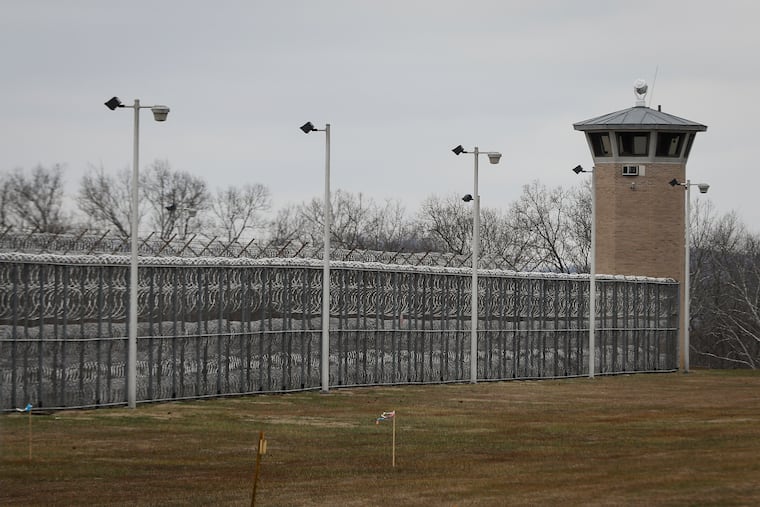Keeping prisoners with dementia behind bars is cruel | Opinion
Prisoners in U.S. suffering dementia may hit 200,000 within the next decade – many won’t even know why they are behind bars.

Like the rest of the United States population, the prison population is aging fast. The U.S. Census Bureau projects that by 2030, people over the age of 55 will account for almost one-third of all incarcerated people. That means that American prisons will house upward of 400,000 older prisoners, about the same population of New Orleans, representing a near doubling of the number of older prisoners currently behind bars.
Caring for these elderly prisoners suffering from physical and mental frailty will create significant challenges for prisons.
As an expert in human rights law and a former commissioner on Pennsylvania’s Sentencing Commission, I am concerned about the burden this places on already overstretched prisons, but also the cost to human dignity. Furthermore, my research suggests that indefinitely detaining someone who does not understand why may violate the United States Constitution’s prohibition on cruel and unusual punishment.
Dying behind bars
America’s large aging U.S. prison population is the direct result of the “tough on crime” policies of the 1980s and 1990s, when three-strike laws and mandatory life sentences without the possibility of parole condemned many to die behind bars. And one in 10 people serving life without the possibility of parole in the U.S. are incarcerated in Pennsylvania.
As the elderly prison population balloons, we must consider the cost of these policies. The Federal Bureau of Prisons spends approximately US$881 million per year caring for the elderly in their custody. Pennsylvania spends $3.2 million on medication for this population each month.
Part of what is driving this cost is the expense of caring for those with serious medical conditions, especially those with dementia. Last year, the federal government opened its first unit dedicated solely to caring for prisoners with dementia. The unit is staffed by nurses, correctional officers and other prisoners who receive special training to help them care for those with Alzheimer’s disease and dementia. Likewise, Pennsylvania has three long term care units behind bars.
The challenge of caring for this population will only compound as it grows. If researchers’ estimates are correct, by the end of this decade around 70,341 to 211,020 of the elderly prison population will have dementia. Most will be unable to perform the regular activities of daily life and will eventually require around-the-clock nursing care.
Unusual cruelty
Finances are not the only concern regarding this elderly incarcerated population. There is also the cost to human dignity.
The Eighth Amendment of the U.S. Constitution upholds this principle by outlawing cruel and unusual punishment. To justify punishment, the Eighth Amendment requires that there be some penological purpose, such as retribution, rehabilitation or deterrence.
Recent U.S. Supreme Court cases suggest there is no such justification for indefinitely incarcerating those with dementia. In February 2019, the court in Madison v. Alabama – which centered around a prisoner who developed severe dementia after a series of strokes – held that it is unconstitutional to execute someone who cannot rationally understand their death sentence because it serves no retributive purpose.
While Madison vs. Alabama addressed death sentences, a 2012 U.S. Supreme Court case provides precedent for the conclusion that the justices’ holding could be extended to life without the possibility of parole. In Miller v. Alabama, the court compared a life sentence to a death sentence, as it “forswears altogether the rehabilitative ideal.”
In other words, both sentences result in the condemned person having no ability to redeem themselves. While the court had suggested in previously cases that the death penalty is in a category all its own, in Miller it suggested that life sentences “share some characteristics with death sentences that are shared by no other sentences.”
Furthermore, when it comes to prisoners with dementia, life sentences cannot be justified as a deterrence. Because of their profound impairments, people with severe dementia are often unable to understand that they are in a prison, much less why. How can someone adjust their behavior to avoid punishment, if they do not understand that the punishment is a consequence of their own bad acts?
Forcing those who cannot understand their punishment to live the remainder of their days behind bars appears to be exactly the type of excessive and cruel punishment that the Eighth Amendment was meant to protect against. We need to reconsider the real world consequences of life without parole sentences.
In my view, the cost, both to taxpayers and to our basic human dignity, is too high.
Rachel Lopez is an Associate Professor of Law, Drexel University. A version of this piece previously appeared on TheConversation.com.